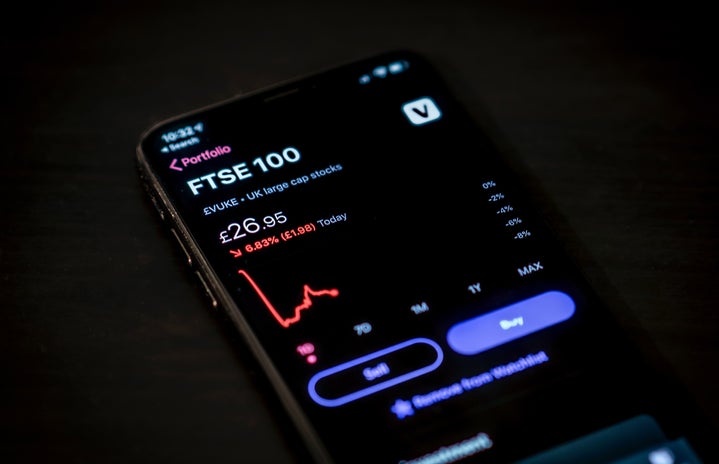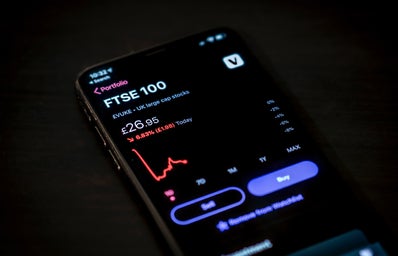Ken Griffin, founder, CEO and primary shareholder of Citadel Securities, a leading market maker, is facing scrutiny concerning his role in the GameStop trading hysteria that unfolded earlier this year. The criticism is drawn from information that arose in a leaked court document.
The meme stock frenzy ignited last winter when amateur traders bought bulk shares in companies like GameStop, AMC Entertainment, Blackberry Limited, Nokia Corporation and others in a campaign to obstruct Wall Street firms that were betting against the holdings. Meme stocks are volatile shares traded primarily by retail investors with little concern for the fundamental business structure or traditional valuation of the company.
A recent lawsuit was filed against Citadel and Robinhood Markets, as well as a number of other brokerages, by investors who claimed they were hindered by the trading restrictions placed on meme stocks. The class-action lawsuit filed in Miami Federal Court asserts Citadel Securities held a significant short position in the GameStop holding and pressured Robinhood, a financial company popular among amateur traders that pioneered exchange-traded funds via a mobile app, to limit trade of the stock. The suit alleges that executives at Citadel and Robinhood exchanged “numerous communications with each other that indicate that Citadel applied pressure on Robinhood.”
Robinhood countered it restricted the trade of GameStop, AMC and others because it lacked the funds to post further collateral with the Depository and Clearing Corporation (DTCC), the clearinghouse through which all equity transactions are made. The DTCC confirmed Robinhood’s claim. The document of interest, however, evidenced that Robinhood and Citadel Securities executives conferred just days prior to the Jan. 28 halt on purchases of several unpredictable stocks with artificially inflated values. The communication is ambiguous as to the exact topic of discussion but suggests talks were bitter and impassioned.
A message dated Jan. 27 from Jim Swartwout, Robinhood COO, states, “you wouldn’t believe the conversation we had with Citadel. total mess.”
Citadel Securities serves as an executor of orders submitted via Robinhood. Robinhood and other brokers sell customer trades to market makers, like Citadel, who strive to execute the trade at either the current market price or an optimized one. Citadel is currently the most prominent executor in the market, having created nearly $1.5 billion in improved market prices last year according to Bloomberg data. Bloomberg data showed the company processed around 45% of privately traded meme stocks. Citadel Securities has adamantly denied exerting any influence on the brokerage firm. In February, Griffin testified to the House Financial Services Committee that his company “had no role in Robinhood’s decision to limit trading in GameStop or any other of the ‘meme’ stocks.”
Upon the court document surfacing, #KenGriffinLied rapidly dominated online discussion and surged up the ranks to become the No. 1 trending topic on Twitter. Furious social media users demanded the financier be prosecuted for lying to Congress. Since then, Citadel Securities has issued a statement via Twitter denying any claims of wrongdoing and dismissing the lawsuit as a mere case of opportunists “trying to concoct an absurd story from regular-way communications between Citadel Securities and the brokers who handle orders for retail investors.”
A spokesperson for Robinhood also denounced the lawsuit as an “attempt to create a false narrative of collusion.” She went on to say, “In times of market distress, it’s normal and advisable for us to communicate even more with our market centers.”
The opposition lawyer, Joseph Saveri, countered that despite the defendants’ perception of the proceedings that led to the Jan. 28 cessation of trade as “regular,” the brokerages’ actions “may fall within the ambit of illegal, anticompetitive conduct. Defendants’ actions significantly injured retail investors […].”
GameStop’s holding price plummeted 44% on Jan. 28 after a number of brokerages imposed limits on the trade of several turbulent stocks, thereby preventing investors from buying shares or adding to their holdings.
In the social media sphere, particularly Reddit and Twitter, Citadel has long been maligned by retail traders for what some perceive to be its status as the largest beneficiary of the move to high-speed trading in the recent decade and its surge during the pandemic. Thus, the firm is no stranger to Internet conspiracies and outlandish theories. Of note is Citadel’s unique handling of this controversy. Whereas historically, the market maker has declined to comment on theories about it exerting undue influence on the market through conspiration with various brokerage firms, the present scandal has seen the Chicago-based group ardently defending itself against media outrage. Prior to the incident, the company’s Twitter account had been inactive since late January.
Recently, the group has been issuing a series of spirited tweets, such as the following: “There are those who refuse to believe an American landed on the moon,” and, “Plaintiffs’ lawyers concealed the facts from the court and the public causing conspiracy theorists to churn baseless theories.”
Some view the firm’s atypical response as an indication of guilt.
The events have resulted in several Congressional hearings, and a Securities and Exchange Commission report on the topic is predicted. On a broader scale, electronic trading firms like Citadel Securities engage in the practice of paying brokerages fees to secure their franchise to execute their customers’ stock and orders, called payment for order flow. The SEC is currently investigating payment for order flow with respect to the entire U.S. stock market, prompted largely by the meme stock sensation.

